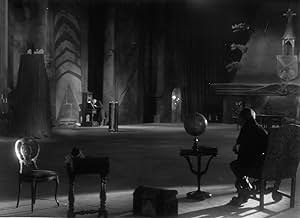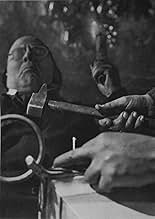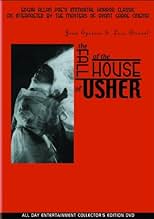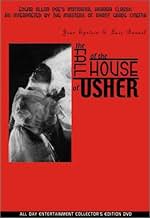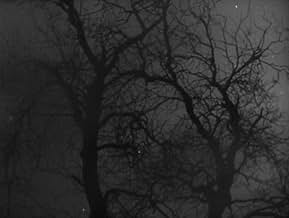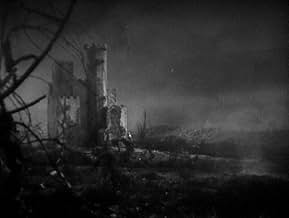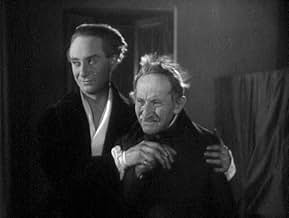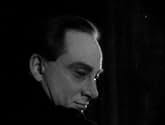VALUTAZIONE IMDb
7,2/10
4850
LA TUA VALUTAZIONE
Aggiungi una trama nella tua linguaAllan visits the sinister Usher family mansion, where his friend Roderick is painting a portrait of his sickly wife Madeline. The portrait seems to be draining the life out of Madeline, slow... Leggi tuttoAllan visits the sinister Usher family mansion, where his friend Roderick is painting a portrait of his sickly wife Madeline. The portrait seems to be draining the life out of Madeline, slowly leading to her death.Allan visits the sinister Usher family mansion, where his friend Roderick is painting a portrait of his sickly wife Madeline. The portrait seems to be draining the life out of Madeline, slowly leading to her death.
- Regia
- Sceneggiatura
- Star
Recensioni in evidenza
The Fall of the House of Usher is about... well, I suppose it's about someone, Allan, visiting the house of Usher, run by Roderick, who lives with his sick wife Madeline and spends most of his time painting and trying to find a cure for whatever her supernatural-esquire disease is. The rest of what happens I cannot really say. Maybe because I'm still not totally sure myself. While I've yet to read the original Poe story, or see the later, more well known Roger Corman production with Vincent Price, I would probably advise on what little I know in comparing both films for the 1960 version if you're most concerned about sticking straight to the story.
Apparently, by the way, Luis Bunuel, who was director Jean Epstein's chief collaborator, quit after creative clashes over this issue. For whatever reason it was, I'd be hard-pressed to figure on how much influence he did or didn't leave on the picture. As it stands, and probably sticking to a certain aesthetic that was familiar for those in love with Poe, the silent version of Fall of the House of Usher is chock full of atmosphere in every kind of delicious, creepy, wonderful kind of connotation. The production design is sometimes full of a smoke, or a smoke-filled tint from the camera, and the outside of the mansion is covered in dirty fields and dead trees. The inside of the house, the interiors of the walls, the mirrors, the paints of Roderick's, and the placement of the camera in some strange angles (i.e. guitar) all build up to something unexpected.
Would I call it surrealism just because of Bunuel's involvement? Yes and no. Yes in that, of course, there are some striking moments that could only come out of a dream &/or a desire to just completely tool around with the audience's head just for the hell of it. And no because it's really Epstein's movie through it all, and he crafts this mostly as a somber, quietly intense picture where he experiments not in as a surrealist but as a director of contemplative Gothic horror. I can't even totally understand what absorbed me, but everything in the 'plastic', technical sense of the word did, not to mention the performances by Debucourt, Lamy, and especially Gance who all seem to be drifting in and out of the fantastical consciousness that seems to be living in this place, where life and death merge or go un-hinged, and (as another reviewer noted) is like a slow-poisoning prison.
Just, as I said, don't watch it to be wrapped up in 'what happens next in the "plot"', as it's more about what may happen in the next twist with a setting or a mood, or if a character should suddenly have a look that changes everything. It's not the greatest of the near-end silent period, but it's close.
Apparently, by the way, Luis Bunuel, who was director Jean Epstein's chief collaborator, quit after creative clashes over this issue. For whatever reason it was, I'd be hard-pressed to figure on how much influence he did or didn't leave on the picture. As it stands, and probably sticking to a certain aesthetic that was familiar for those in love with Poe, the silent version of Fall of the House of Usher is chock full of atmosphere in every kind of delicious, creepy, wonderful kind of connotation. The production design is sometimes full of a smoke, or a smoke-filled tint from the camera, and the outside of the mansion is covered in dirty fields and dead trees. The inside of the house, the interiors of the walls, the mirrors, the paints of Roderick's, and the placement of the camera in some strange angles (i.e. guitar) all build up to something unexpected.
Would I call it surrealism just because of Bunuel's involvement? Yes and no. Yes in that, of course, there are some striking moments that could only come out of a dream &/or a desire to just completely tool around with the audience's head just for the hell of it. And no because it's really Epstein's movie through it all, and he crafts this mostly as a somber, quietly intense picture where he experiments not in as a surrealist but as a director of contemplative Gothic horror. I can't even totally understand what absorbed me, but everything in the 'plastic', technical sense of the word did, not to mention the performances by Debucourt, Lamy, and especially Gance who all seem to be drifting in and out of the fantastical consciousness that seems to be living in this place, where life and death merge or go un-hinged, and (as another reviewer noted) is like a slow-poisoning prison.
Just, as I said, don't watch it to be wrapped up in 'what happens next in the "plot"', as it's more about what may happen in the next twist with a setting or a mood, or if a character should suddenly have a look that changes everything. It's not the greatest of the near-end silent period, but it's close.
I've read the Poe source for this film more times than I can remember, and Epstein's film captures that story's sense of decay and degeneracy the best by far. Corman's version can't hold a candle to this film; in fact, I feel as if I'm doing a grave disservice to Epstein's work by mentioning Corman's film in the same sentence with it. Let it pass.
Although I'd read about Epstein's USHER for many years and pondered the stills, particularly of the Lady Madeline in her billowing, winding sheet, I was not at all prepared for the terrifying beauty and hypnotic delirium of this motion picture.
It's certainly not for all tastes, and, for those not particularly well-read in outre or occult literature, it will be inscrutable. But for those with an open mind and an appreciation of convulsive beauty, it's hard to find a more exquisite film.
Although I'd read about Epstein's USHER for many years and pondered the stills, particularly of the Lady Madeline in her billowing, winding sheet, I was not at all prepared for the terrifying beauty and hypnotic delirium of this motion picture.
It's certainly not for all tastes, and, for those not particularly well-read in outre or occult literature, it will be inscrutable. But for those with an open mind and an appreciation of convulsive beauty, it's hard to find a more exquisite film.
As was inevitable, movies of the silent era depended on their imagery in a way that became less important after the introduction of sound. During the same time period there were a number of hugely significant art movements that would influence the relatively new medium of cinema. Art trends such as cubism, dada, expressionism and surrealism had enormous impact on films of the time. The Fall of the House of Usher is a good example of a film based on 19th century literature but brought to the screen via the artistic sensibilities of the day, namely expressionism and surrealism. Because of this, like its peers such as The Cabinet of Dr. Caligari and Nosferatu, it has attained a timeless quality and it will always remain a fascinating art-horror film.
The plot-line such that it is, is about a man named Allan who visits his friend Roderick Usher at his remote mansion. Usher lives with his sick wife Madeline, who suffers from some mysterious unknown disease. He is obsessed in painting a portrait of her. She dies and Usher, unable to accept it, descends into madness.
The tone is definitely downbeat and this is reflected by the gloomy haunting imagery used throughout. The strikingly inventive visuals escalate as the film progresses as a way of reflecting Roderick Usher's journey into insanity. Billowing curtains, close-ups of a giant pendulum, a haunting painting of Usher's wife, a moon-lit trip to the mausoleum and swirling mist are just some of the details captured. The film is overloaded in creepy Gothic atmosphere. Production design is excellent, with the grounds of the mansion populated with dead trees and swirling mist, while the interior has enormously high ceilinged rooms decorated with mirrors, curtains and Gothic furniture. In keeping with the film's artistic bent, everything is photographed quite excellently with many close-ups and unusual angles. The overall feeling of the film is that of a fever-dream which is very much in keeping with the central character's damaged state of mind.
In the best silent films, the storyline is very much secondary to the ambiance. The Fall of the House of Usher is no different and is one of the greatest silent horror films. It's an often quite stunning mood piece and comes highly recommended.
The plot-line such that it is, is about a man named Allan who visits his friend Roderick Usher at his remote mansion. Usher lives with his sick wife Madeline, who suffers from some mysterious unknown disease. He is obsessed in painting a portrait of her. She dies and Usher, unable to accept it, descends into madness.
The tone is definitely downbeat and this is reflected by the gloomy haunting imagery used throughout. The strikingly inventive visuals escalate as the film progresses as a way of reflecting Roderick Usher's journey into insanity. Billowing curtains, close-ups of a giant pendulum, a haunting painting of Usher's wife, a moon-lit trip to the mausoleum and swirling mist are just some of the details captured. The film is overloaded in creepy Gothic atmosphere. Production design is excellent, with the grounds of the mansion populated with dead trees and swirling mist, while the interior has enormously high ceilinged rooms decorated with mirrors, curtains and Gothic furniture. In keeping with the film's artistic bent, everything is photographed quite excellently with many close-ups and unusual angles. The overall feeling of the film is that of a fever-dream which is very much in keeping with the central character's damaged state of mind.
In the best silent films, the storyline is very much secondary to the ambiance. The Fall of the House of Usher is no different and is one of the greatest silent horror films. It's an often quite stunning mood piece and comes highly recommended.
I had the chance to see this film about 20 years ago and it's still quite fresh in my mind (if you knew me you'd find this very unusual). I still remember how I was wrapping myself up during the course of the film as I was feeling colder and colder - it was a summer night, mind you.
The plot sticks tightly to the original story and it shows France's affinity with Edgar Allan Poe since it was the great Charles Beaudelaire himself who translated Poe's work into French.
The film manages to create an unusual sense of discomfort unlike most classic horror films where the settings etc. result more in a feeling of (uneasy) cosiness. The insanity in Roderick Usher's face is utterly believable as well as the parts of the other characters. What tops it all up is the constant draught in the mansion. Wall hangings are steadily moving and bits of paper and dust are blowing through the corridors. Hence the above mentioned feeling of physical coldness.
All I can say is I need to see this film again and I would be grateful if anyone could point me in the right direction (Quelq'un en France, peut-etre?).
The plot sticks tightly to the original story and it shows France's affinity with Edgar Allan Poe since it was the great Charles Beaudelaire himself who translated Poe's work into French.
The film manages to create an unusual sense of discomfort unlike most classic horror films where the settings etc. result more in a feeling of (uneasy) cosiness. The insanity in Roderick Usher's face is utterly believable as well as the parts of the other characters. What tops it all up is the constant draught in the mansion. Wall hangings are steadily moving and bits of paper and dust are blowing through the corridors. Hence the above mentioned feeling of physical coldness.
All I can say is I need to see this film again and I would be grateful if anyone could point me in the right direction (Quelq'un en France, peut-etre?).
First and foremost: I love the tale of "House of Usher", regardless of which film version, and I try to encourage as many people as humanly possible to check out this haunting story of agony and Gothic damnation
So, I swear, if one more person replies me with: "Usher?
Oh, you mean the R&B singer? Yeah, he's cool", then I swear I will go Edgar Allan Poe on his/her ass! Thank you.
Admittedly I'm not much of an art connoisseur, but I reckon this silent classic is pure and genuine art! It's a stunningly beautiful, haunting, surreal and absorbing impressionistic interpretation of Poe's short story. The plot is undeniably subsequent to the atmosphere and choreography, and I actually don't recognize the storyline from the other versions I've seen. In the other versions, for example the awesome Roger Corman production starring the almighty Vincent Price, the Usher kinship is cursed and continuously being punished for the crimes committed by their evil ancestors. Here, it's actually just Sir Roderick Usher who's obsessed with painting a portrait of his lovely wife Madeleine, only The nearer the painting comes to completion, the more his wife weakens due to a strange illness. After her death and burial service, Sir Roderick becomes increasingly mad with the restless ghost of his Madeleine still prowling through the house. The story is often confusion and open for various interpretations, but the wholesome is just downright visually stunning! Director Jean Epstein, with the more than noticeable influence of his young and upcoming assistant director Louis Buñuel, generates an atmosphere that is morbid, depressing and hypnotic from start to finish and multiple sequences are hauntingly surreal; like the funeral march and the storm. I watched the 1997 restored version, during a special film festival where there was a professional pianist providing live musical guidance, and it was one of the most culturally engaged moments of my life. Art like this will surely survive for yet another hundred years.
Admittedly I'm not much of an art connoisseur, but I reckon this silent classic is pure and genuine art! It's a stunningly beautiful, haunting, surreal and absorbing impressionistic interpretation of Poe's short story. The plot is undeniably subsequent to the atmosphere and choreography, and I actually don't recognize the storyline from the other versions I've seen. In the other versions, for example the awesome Roger Corman production starring the almighty Vincent Price, the Usher kinship is cursed and continuously being punished for the crimes committed by their evil ancestors. Here, it's actually just Sir Roderick Usher who's obsessed with painting a portrait of his lovely wife Madeleine, only The nearer the painting comes to completion, the more his wife weakens due to a strange illness. After her death and burial service, Sir Roderick becomes increasingly mad with the restless ghost of his Madeleine still prowling through the house. The story is often confusion and open for various interpretations, but the wholesome is just downright visually stunning! Director Jean Epstein, with the more than noticeable influence of his young and upcoming assistant director Louis Buñuel, generates an atmosphere that is morbid, depressing and hypnotic from start to finish and multiple sequences are hauntingly surreal; like the funeral march and the storm. I watched the 1997 restored version, during a special film festival where there was a professional pianist providing live musical guidance, and it was one of the most culturally engaged moments of my life. Art like this will surely survive for yet another hundred years.
Lo sapevi?
- QuizLuis Buñuel, who was Assistant Director, quit the picture after clashing with producer/director Jean Epstein over Epstein's decision to basically ignore Edgar Allan Poe's story.
- ConnessioniEdited into Histoire(s) du cinéma: Une vague nouvelle (1999)
I più visti
Accedi per valutare e creare un elenco di titoli salvati per ottenere consigli personalizzati
- How long is The Fall of the House of Usher?Powered by Alexa
Dettagli
- Data di uscita
- Paese di origine
- Lingua
- Celebre anche come
- The Fall of the House of Usher
- Luoghi delle riprese
- Azienda produttrice
- Vedi altri crediti dell’azienda su IMDbPro
- Tempo di esecuzione1 ora 12 minuti
- Colore
- Mix di suoni
- Proporzioni
- 1.33 : 1
Contribuisci a questa pagina
Suggerisci una modifica o aggiungi i contenuti mancanti

Divario superiore
What is the German language plot outline for La caduta della casa Usher (1928)?
Rispondi
